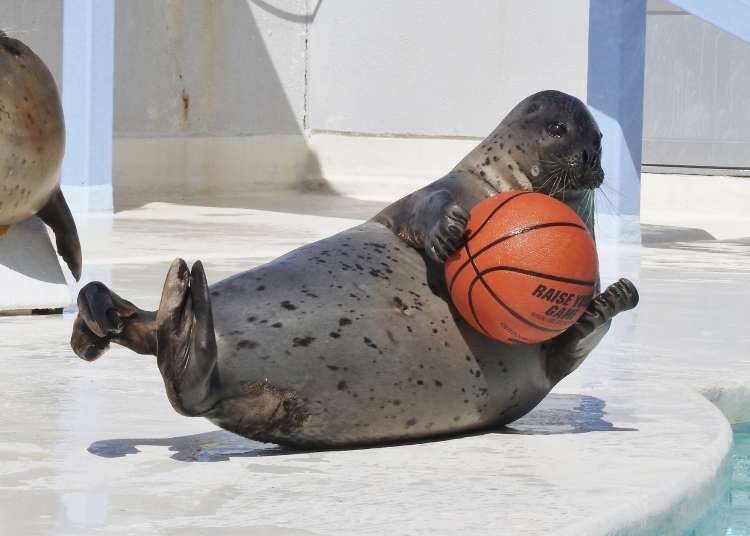
Ultimate Guide to Otaru Aquarium: Cute Penguins, Friendly Seals, and More!
- Written by: Minna no Kotoba Sha
Otaru Aquarium was built in 1958 as a venue for EXPO HOKKAIDO and has over 60 years of history. It is known for being the first in the world to breed the ringed seal successfully, and Otaru Aquarium is also recognized for the effort that goes into its exhibits, such as its cute penguin shows.
When you visit Otaru, this aquarium is definitely a sightseeing spot not to be missed! Today we’ll take an in-depth look at Otaru Aquarium and show you how you make the most out of your time here.
- Table of Contents
-
- Receive a Warm Welcome from Otaru Aquarium’s Mascot Characters
- First, let us buy some admission tickets from the front entrance.
- The Largest and Panoramic Fish Tank is Here!
- The “Honobono Pool,” Where the Harbor Porpoises Reside
- Seafood Seasonality: Find Out Which Sea Creatures Taste Best During Each Season!
- The 360-Degree Fish Tank “Sea of Okhotsk / Bering Sea”
- Showcases by the Dolphins and the South American Sea Lions
- The “Marine Mammals Park,” An Exhibit That’s Part of the Sea!
- Try Your Hand at Feeding the Seals
- Watch the Steller Sea Lions Dive!
- The Penguins That Lead Carefree Lives in the Aquarium
- Pick Up Souvenirs at the Gift Shop
- Getting to Otaru Aquarium from Sapporo
Receive a Warm Welcome from Otaru Aquarium’s Mascot Characters
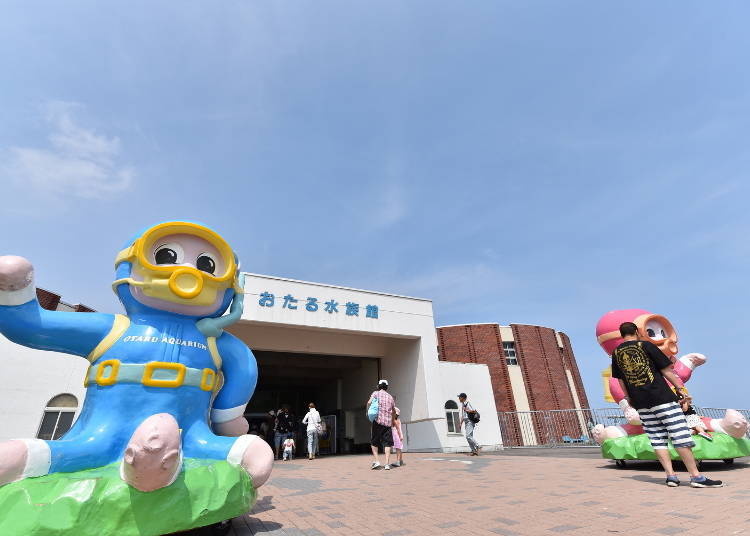
Otaru Aquarium is a 15-minute car ride away from Otaru Station. There are buses bound for the aquarium available, too, serving as an alternate means of transport. Although the aquarium’s location is quite a distance away from the Otaru town area, it remains a highly accessible sightseeing spot.
Otaru Aquarium comprises of the main building, the Dolphin Stadium, and the Marine Mammals Park. With approximately 5,000 sea creatures of around 250 species exhibited, the aquarium is beloved by both locals and tourists alike. Upon arrival, visitors are welcomed by the aquarium’s mascot characters “Hacchan” and “Nanachan” at the aquarium entrance, which is a popular spot for taking photos.
First, let us buy some admission tickets from the front entrance.
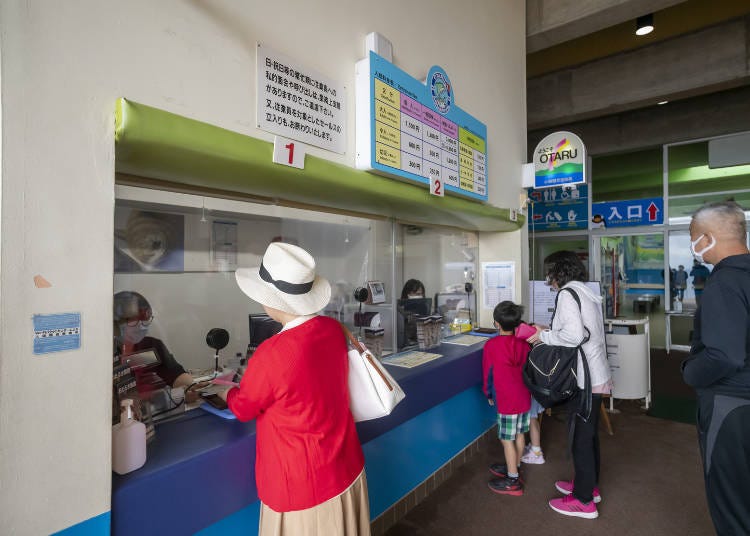
You will receive a pamphlet along with the tickets you have purchased. Besides Japanese, the pamphlet is available in English, Chinese and Thai.
Once you enter, you will be greeted by the sight of sea turtles. These sea turtles swimming around in the water tank are of two species, the loggerhead turtle and the green turtle.
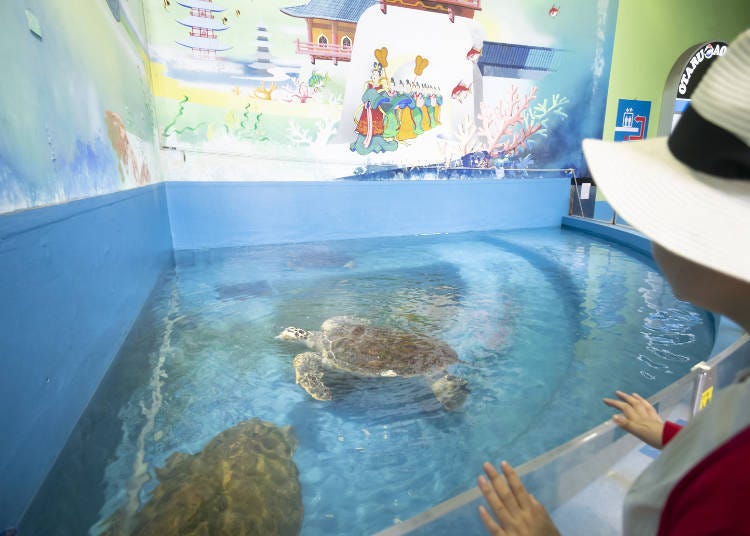
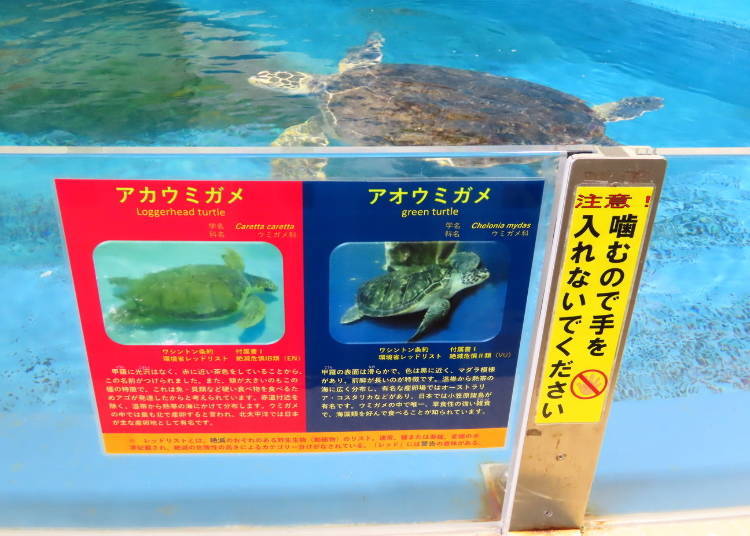
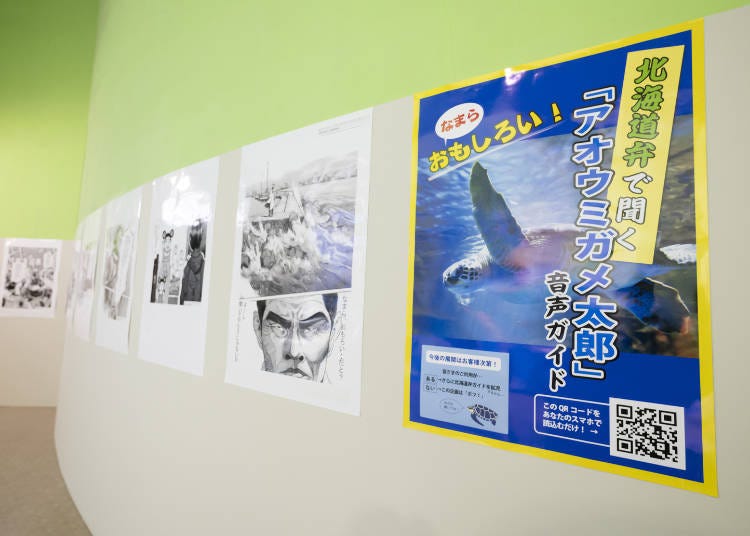
Next to the sea turtles’ water tank is an information board. There is a QR code on the board which you can scan for an audio guide about ten sea creatures featured by Otaru Aquarium. This guide is available in Japanese, English, and Simplified Chinese, so do give it a listen. The QR code is also available on the pamphlet.
The Largest and Panoramic Fish Tank is Here!
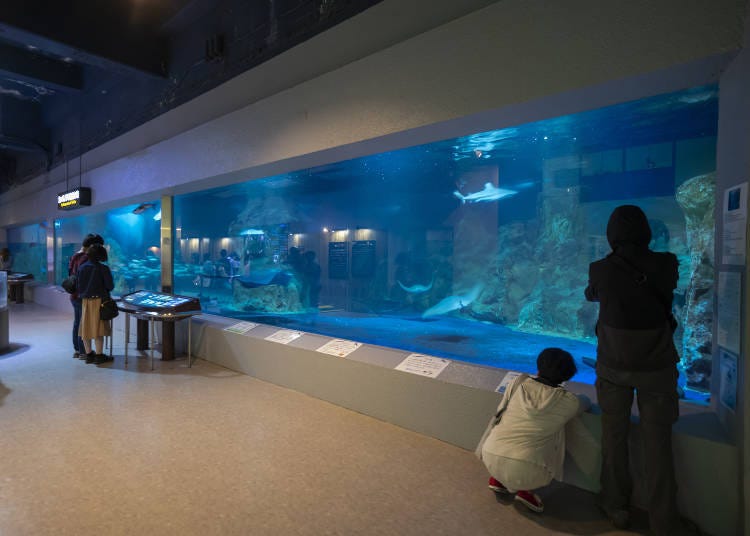
As you proceed inwards, you will see a large water tank along the wall that offers you a panoramic view. Enjoy the incredible view of sharks, rays, green turtles, and more leisurely swimming around before your eyes!
The green turtle “Tarō” that you hear about in the audio guide is also here in this large, panoramic tank.

Tarō is a sea turtle that was found without one of its forelimbs on the shore of Shobetsu Village in northern Hokkaido. It has been living its life in the panoramic fish tank since 2013. The Japanese audio guide about Tarō contains some Hokkaido dialect, so do check it out if you are interested!
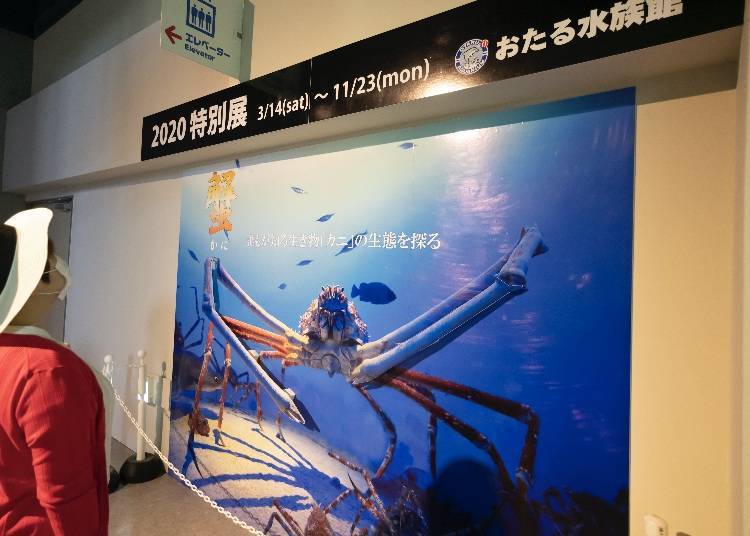
The most iconic part of the Otaru Aquarium is its special, time-limited exhibit, which features a particular sea creature and explains its ecology and characteristics. The crab is the featured sea creature for the year 2020 and will have its dedicated exhibit just by the panoramic tank until 23 November.
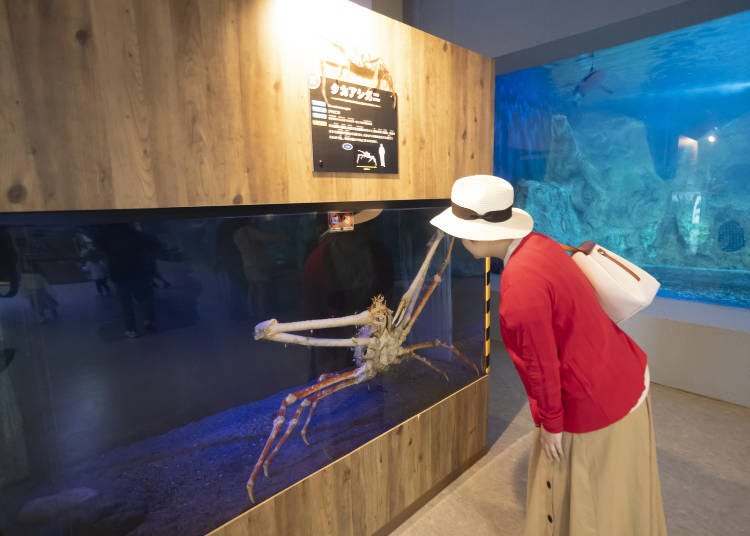
The “Honobono Pool,” Where the Harbor Porpoises Reside
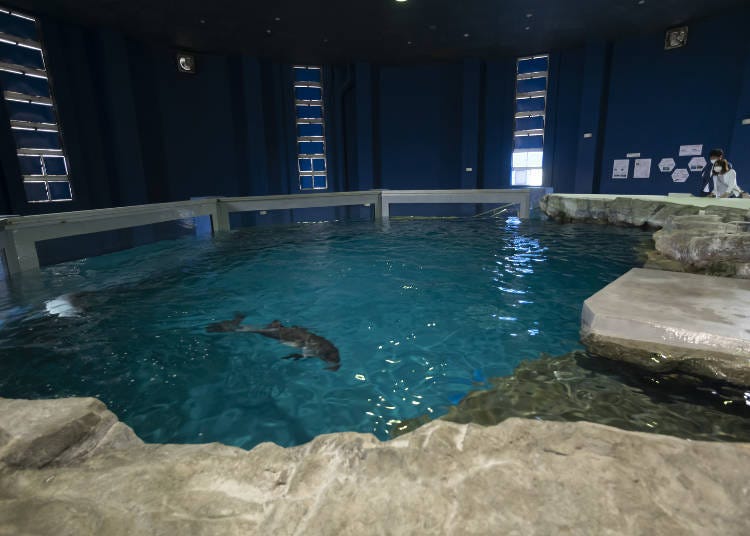
The harbor porpoise is a small cetacean that inhabits the coasts of Hokkaido. There are only a few facilities where the harbor porpoise is reared in exhibits – Otaru Aquarium is one of the two aquariums in the whole of Japan that does so.
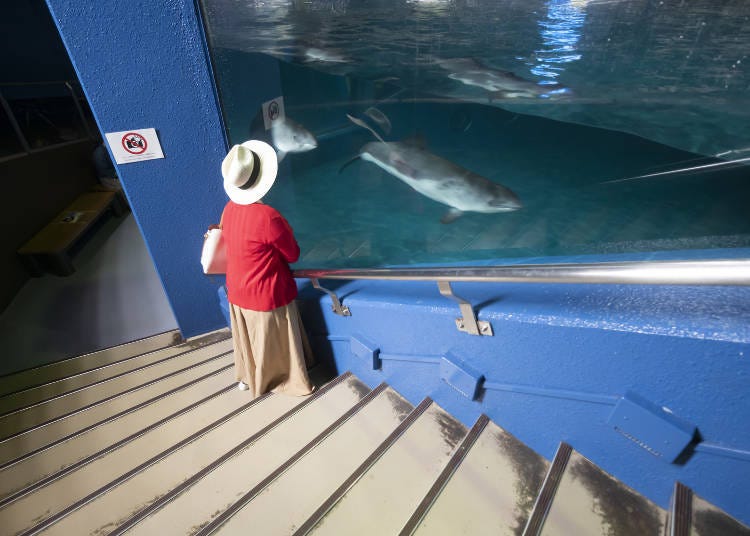
The four harbor porpoises reared here were caught in a stationary net. In collaboration with the Hokkaido University Faculty of Fisheries Sciences, the aquarium is currently researching the ecology and habits of the harbor porpoise.
Although harbor porpoises are extremely vigilant, they are also full of curiosity. They may seem to be swimming quickly without a care about their surroundings, but in reality, these harbor porpoises are always on their guard, perhaps even watching out for you!
Seafood Seasonality: Find Out Which Sea Creatures Taste Best During Each Season!
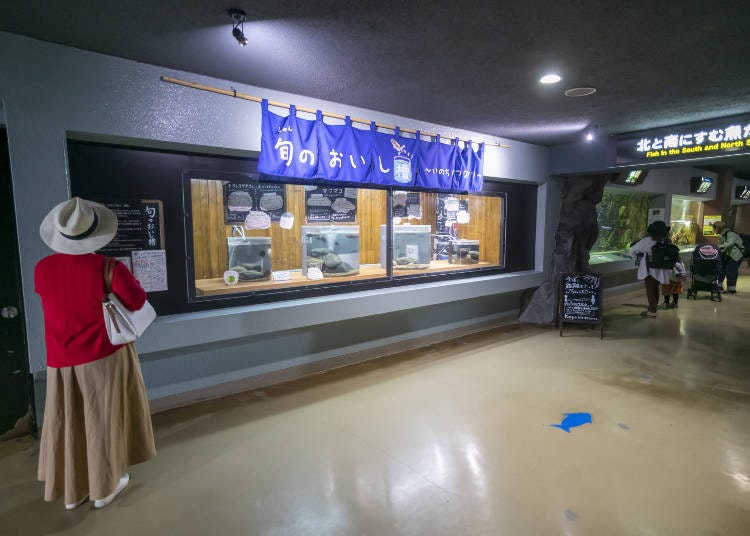
This permanent exhibit called “Shun no Oishisou” is where Hokkaido’s seasonal sea creatures are exhibited. The sea creatures exhibited are those that can be eaten during that particular season. Otaru is known for its sushi, after all, so be sure to drop by this exhibit at the aquarium before your meal.
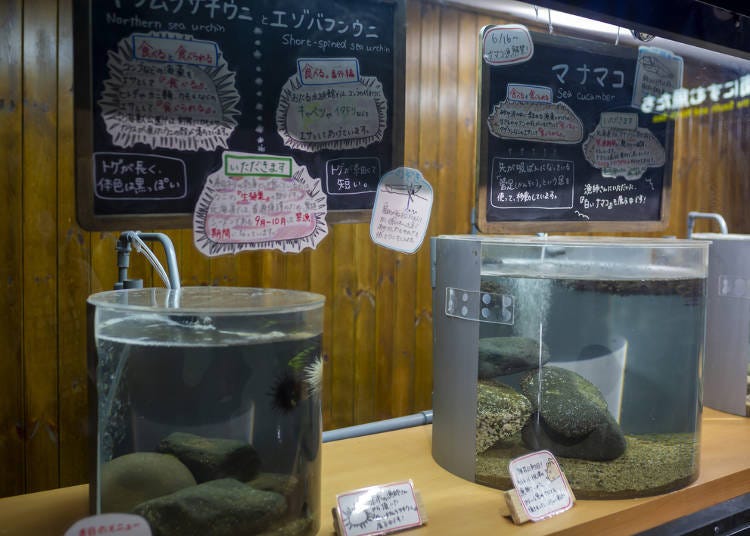
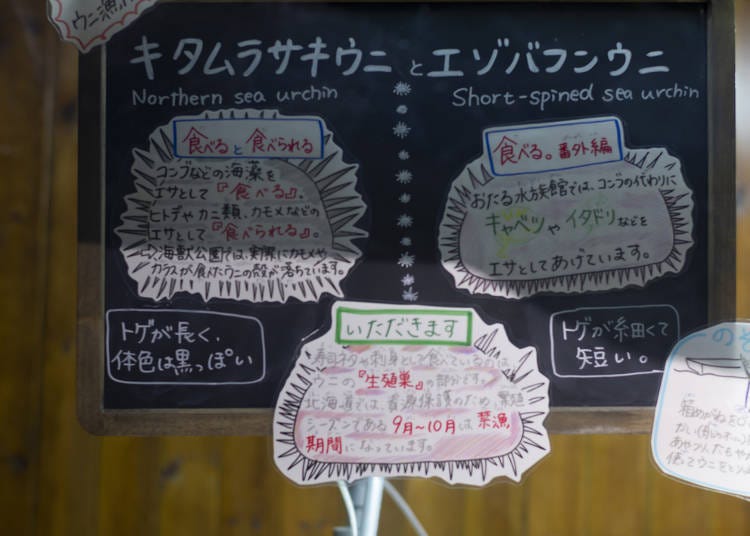
There are information sheets and boards everywhere in Otaru Aquarium, created by the zoo caretakers themselves. At the “Shun no Oishisou” exhibit, these information sheets and boards tell us more about the sea creature and its characteristics and how to consume it. Lots of other hand-drawn illustrations and quizzes are put up by each fish tank so remember to have a look!
The 360-Degree Fish Tank “Sea of Okhotsk / Bering Sea”
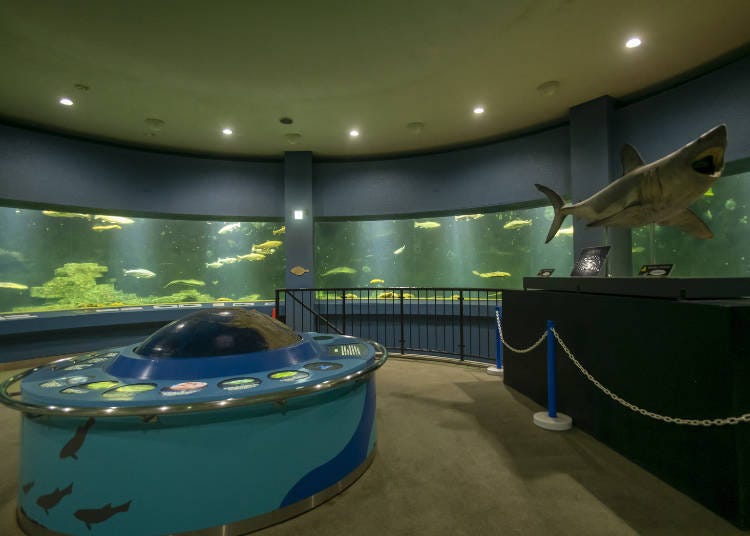
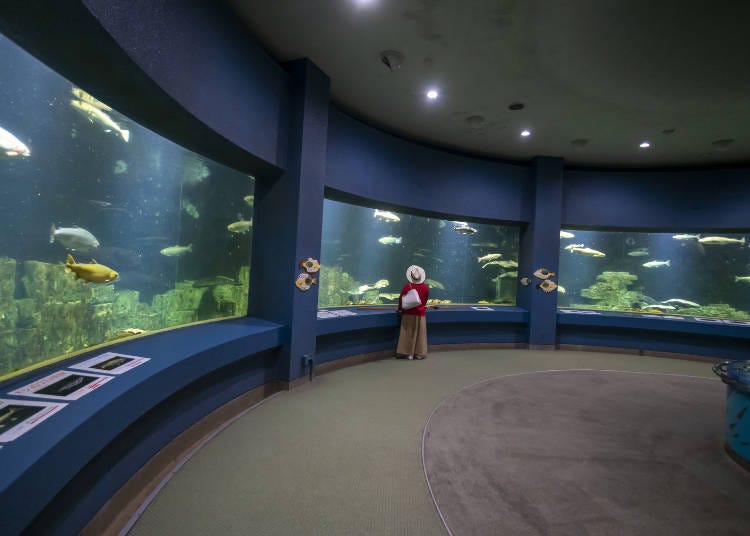
In this section, called “Sea of Okhotsk / Bering Sea,” visitors meet the fishes that mainly inhabit the seas in cold areas. Upon entering this space, you will find yourself surrounded by a 360-degree fish tank.
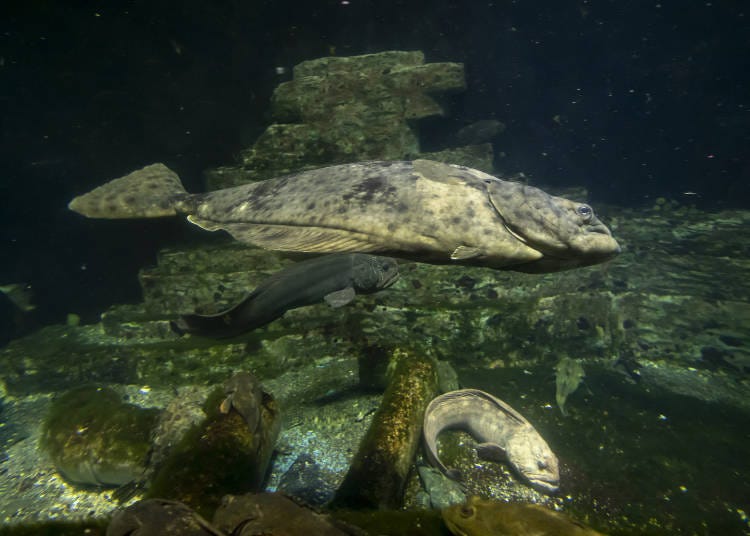
The flat fish present in this fish tank is known as a halibut. It is the largest fish of the right-eye flounder family – among the ones caught by the aquarium in the past, there was even one measuring 2.7 meters in length! Seeing it up close is certainly an overwhelming experience.
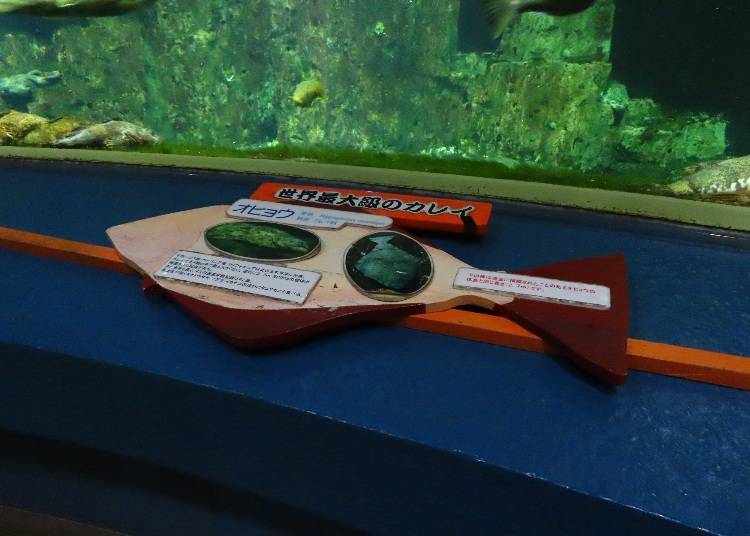

This fish with the scary face is the Bering wolffish. Because of a legend that claimed that a good catch of the pacific herring would follow after you catch a Bering wolffish, the Ainu people referred to this fish as the ‘god of fish.’
Even though the Bering wolffish typically stays within the crevices of rocks, the ones at Otaru Aquarium swim around in a carefree manner. The explanation for their odd behavior has not been found just yet, but this is where you can catch a rare sight of the bering wolffish swimming!
Showcases by the Dolphins and the South American Sea Lions
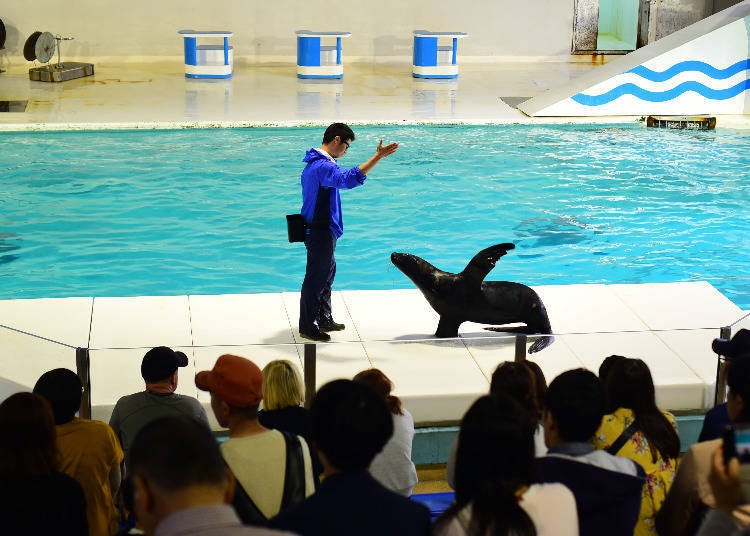
In the Dolphin Stadium, visitors can enjoy showcases of the dolphin and the South American sea lion. There are solo shows for the South American sea lions, but the aquarium also organizes the “South American Sea Lions’ Elementary School,” a show that involves three sea lions. Meanwhile, the bottlenose dolphins charm the audience with their adorable performances and powerful jumps. You have to see the huge splashes from their dynamic jumps!
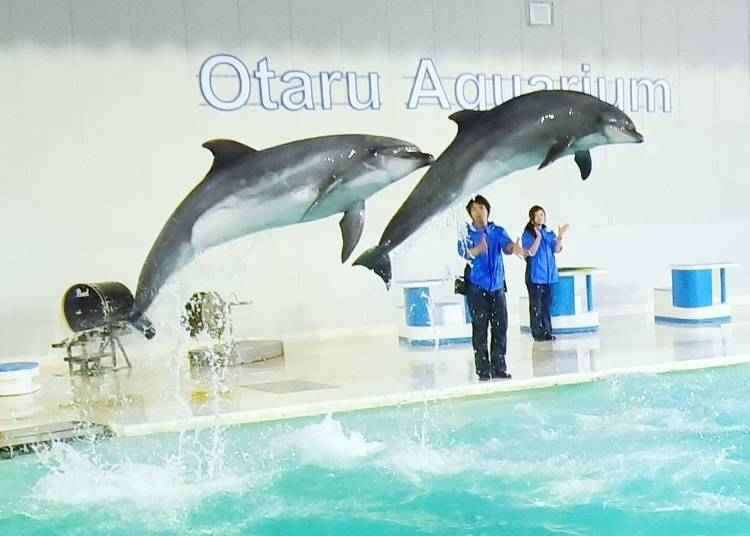
The “Marine Mammals Park,” An Exhibit That’s Part of the Sea!
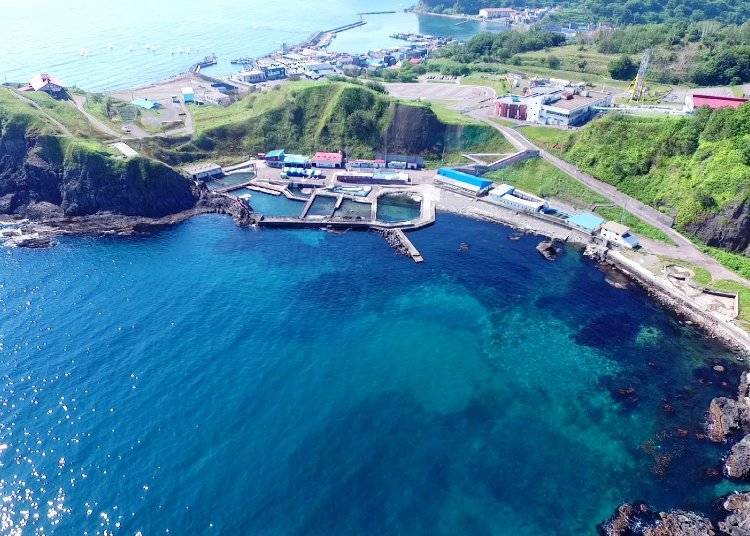
The Marine Mammal Park is a popular exhibit in Otaru Aquarium that is located outdoors. As you make your way down the mountain path towards the park, remember to look out and enjoy the clear waters of the wide sea!
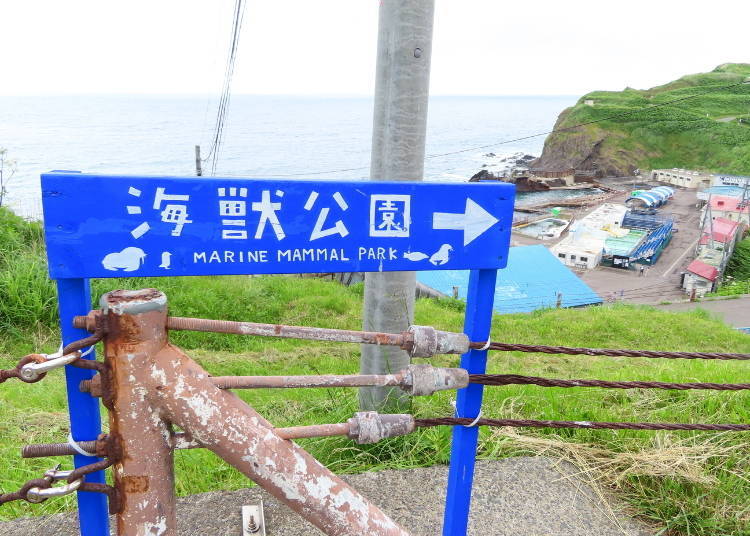
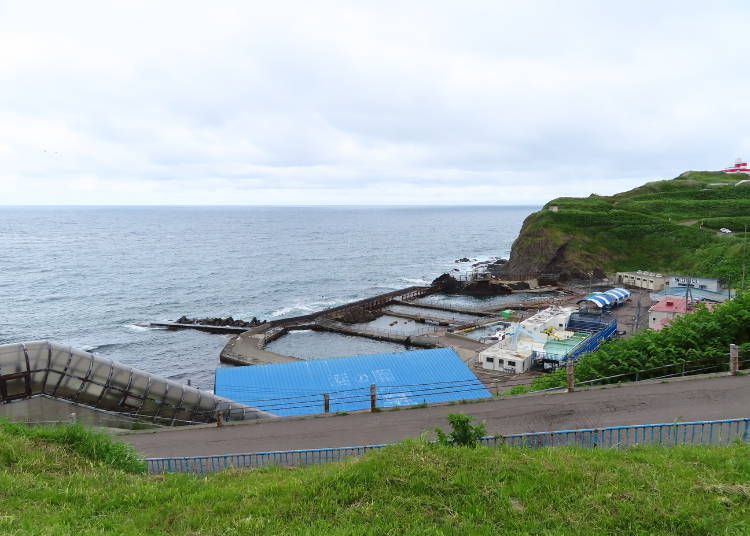
The pool of the Marine Mammals Park was actually created by partitioning off part of the sea. As this is not much different from the original, natural environment, seaweed like konbu grow abundantly here. Also, sea creatures like sea urchin and sea cucumber inhabit this pool, which is also home to earless seals and Steller sea lions.
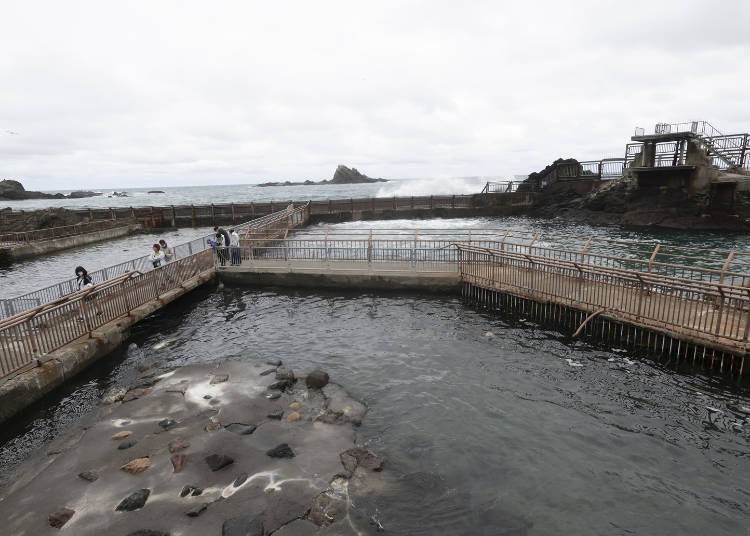
Try Your Hand at Feeding the Seals
Five kinds of seals inhabit the seas near Japan, out of which four types are exhibited at Otaru Aquarium. The aquarium rears 47 seals in total, the largest number of seals among all aquariums in Japan.
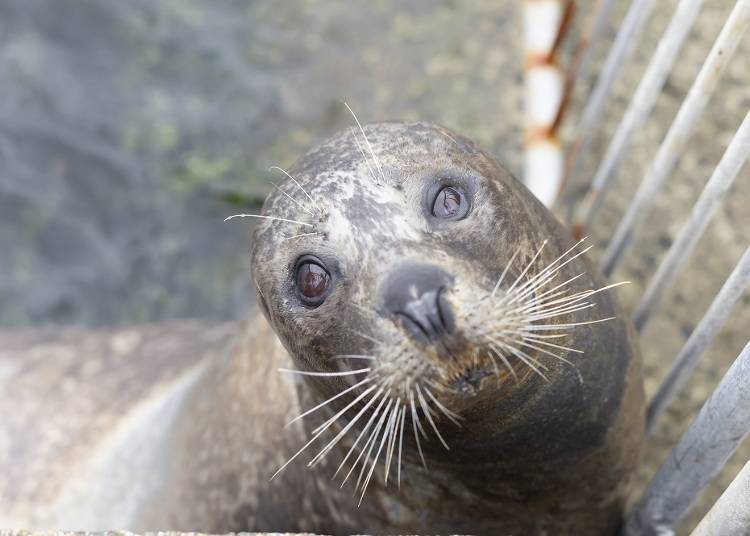
Something you should definitely try while you are here is to feed the seals. You can purchase a bucket of feed for the seals, which will contain Ohoktsk atka mackerel or saffron cod.
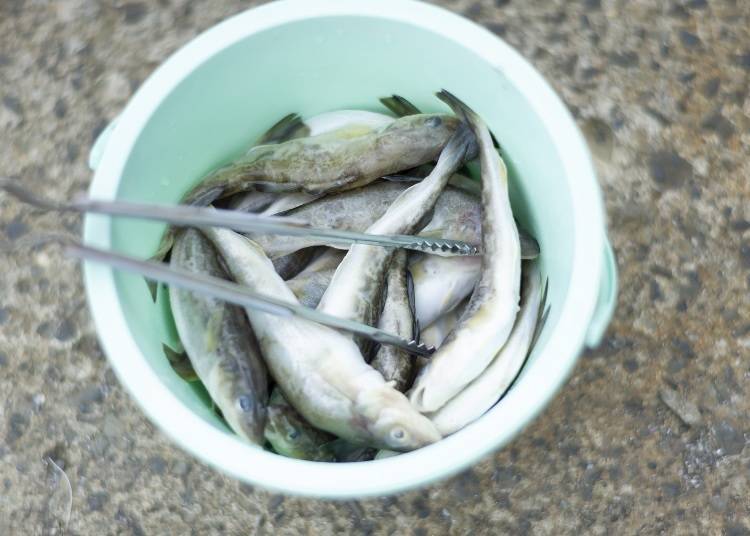
Once you head over to the side of the pool with the feed, the hungry seals will soon gather towards you, eyeing the bucket in your hand! Some of them will ask for food by flapping their forelimbs on the surface of the water, while others will bark. As soon as you throw fish in, the seals will scramble for them so be careful not to get splashed!
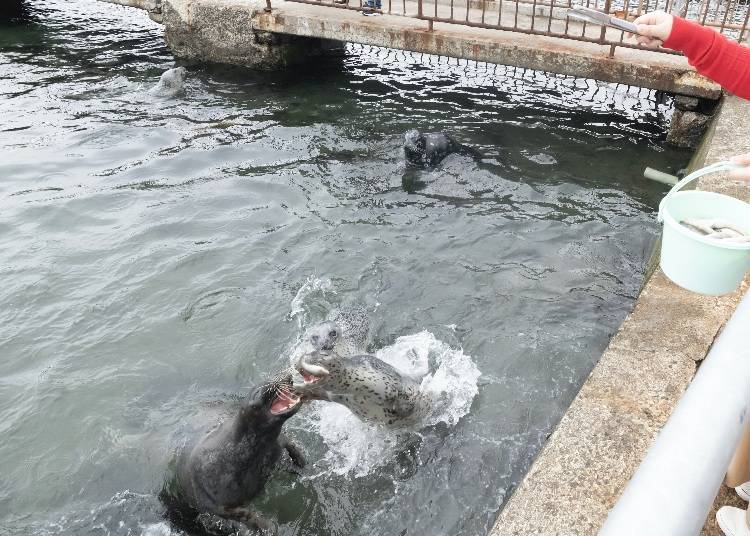
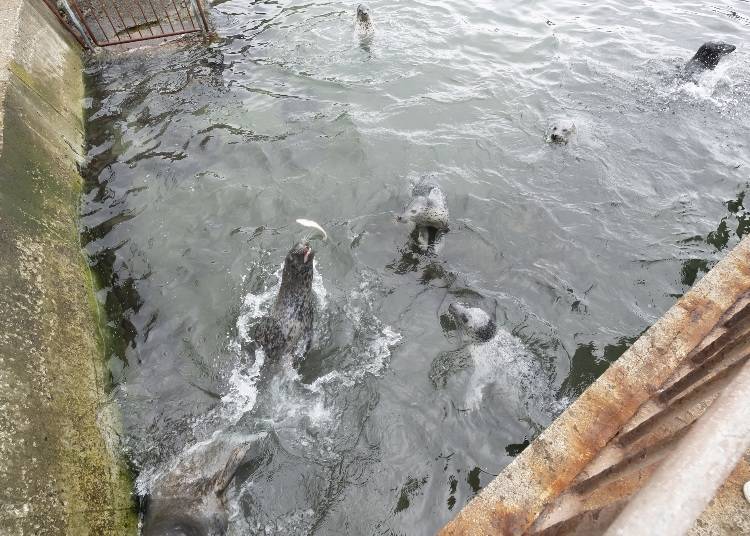
Watch the Steller Sea Lions Dive!
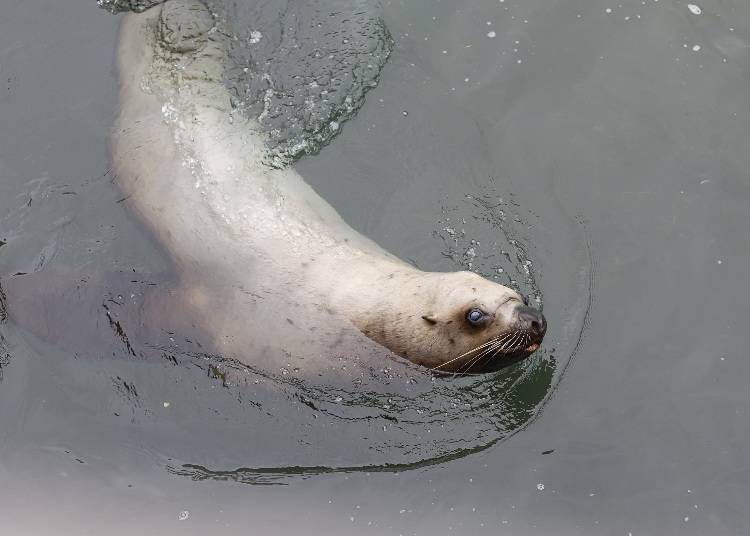
Let’s head to the pool for Steller sea lions next. As you approach the pool, the Steller sea lions reciprocate by coming closer too.
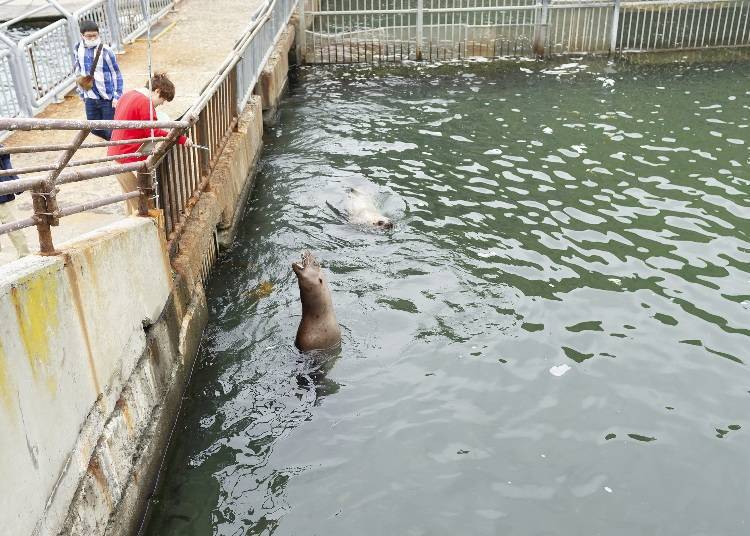
There are Steller sea lion shows organized at Otaru Aquarium too. The most exciting part of these shows is when as many as six Steller sea lions dive into the waters together – a brilliant performance you can’t tear your eyes away from.
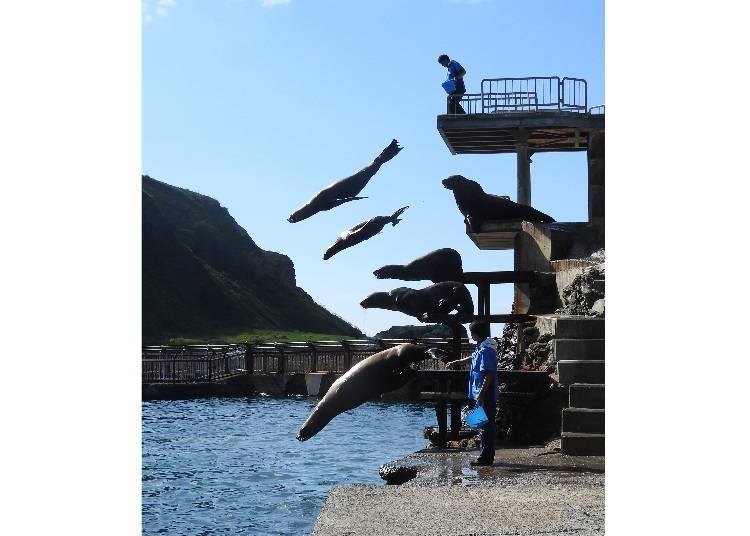
The coastline along the Marine Mammals Park is actually part of the Niseko-Shakotan-Otaru Kaigan Quasi-National Park. Here in the sea is where wild seals and Steller sea lions live. In winter, about 100 to 150 wild Steller sea lions gather on the “Todoiwa,” a rock visible from the Marine Mammals Park. If you bring along a pair of binoculars, you might be able to catch a glimpse of Otaru’s wild Steller sea lions and earless seals there!
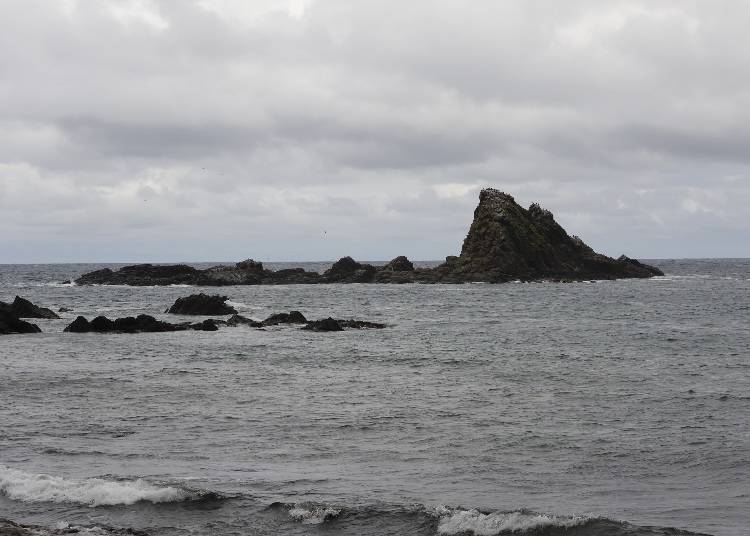
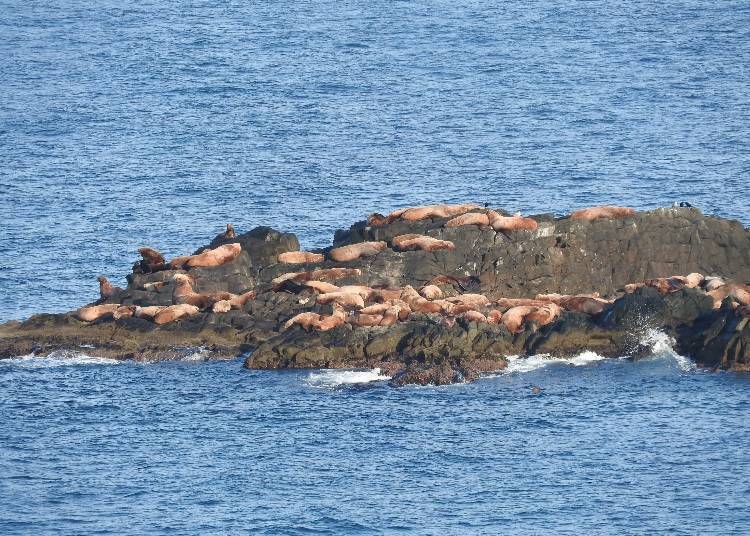
The Penguins That Lead Carefree Lives in the Aquarium
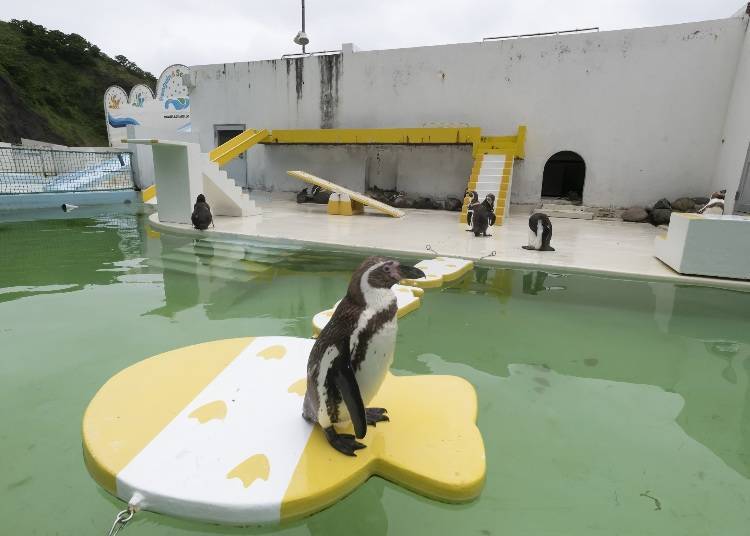
Don’t forget to pay a visit to the penguins when you are at Marine Mammals Park! They are one of the most popular sea creatures here at Otaru Aquarium. The penguins reared here are the Humboldt penguin and the Gentoo penguin. In particular, the Humboldt penguins put up amazing penguin shows during summer! The penguins here are well-known for their carefree lifestyle. They do not show any concern about what the caretakers say, do what they want and do not bother showcasing any special talents or skills! For acting according to their own whims, these penguins command quite the popularity at their ‘entertaining’ shows – where they simply ignore the trainers’ instructions and do as they like!
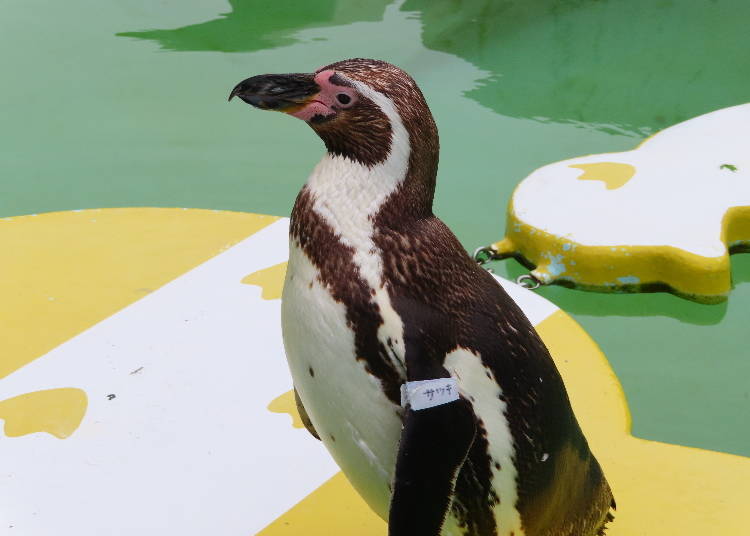
There is a special show put up during summer, called “The Penguins’ Excursion to the Sea.” This is when the Humboldt penguins leave their enclosures and head for the sea while passing the visitors by along the way!
In the winter, the aquarium organizes the show “Penguins Strolling in the Snow.” This show is where the Gentoo penguins get to shine as they walk around on the snow-covered paths freely and adorably, grabbing the attention of all the visitors!
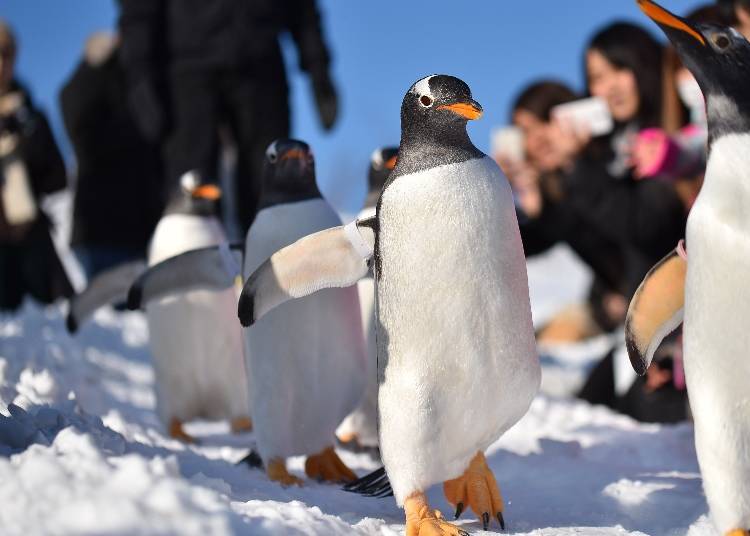
On the way to the Dolphin Stadium, there is a little island for the Humboldt penguins that was opened in April 2020. This ‘island’ is an enclosure that was constructed to mimic Chile and Peru’s natural environments in South America that Humboldt penguins normally inhabit. As such, their actions and movements are also typical of wild Humboldt penguins. They climb up onto rocks and hide in the shade on a hot day.
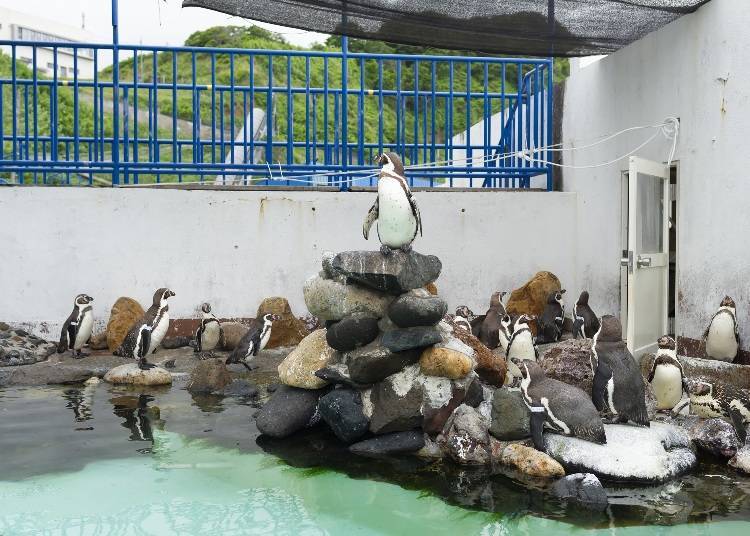
Pick Up Souvenirs at the Gift Shop
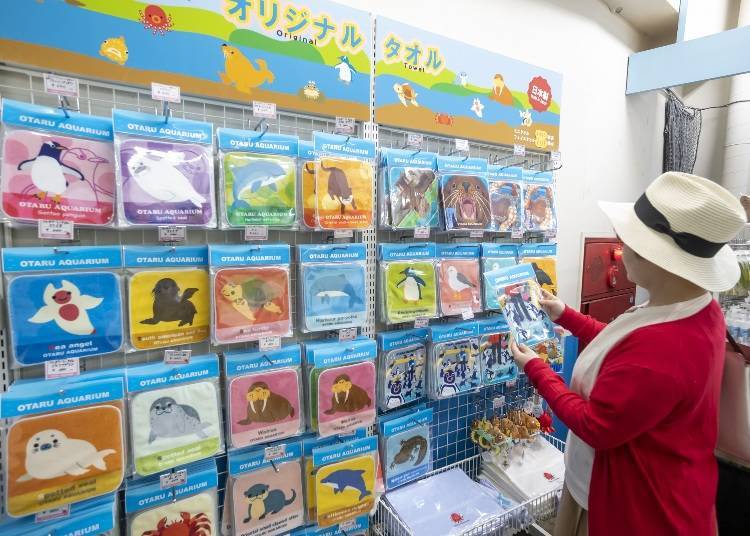
After going around the various parts of the aquarium, how about ending your trip by picking up some souvenirs to remember all the fun you have had? The gift shop is divided into two sections on the first and second floors. The section on the first floor is just past the main entrance of the aquarium.
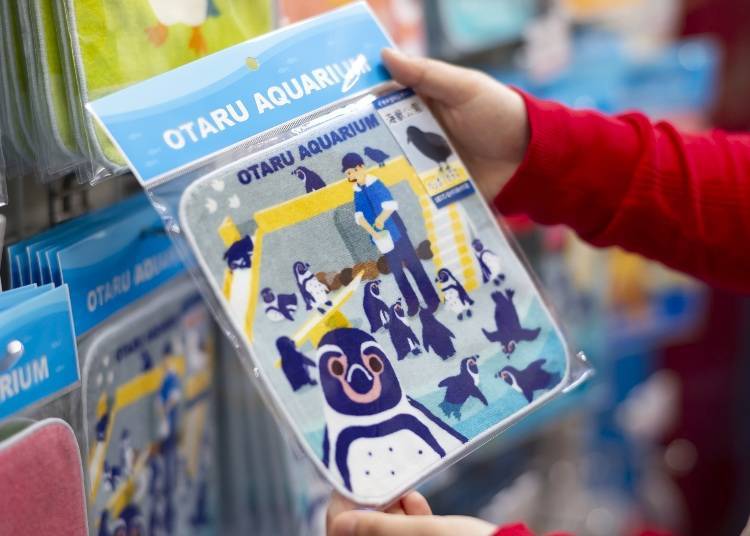
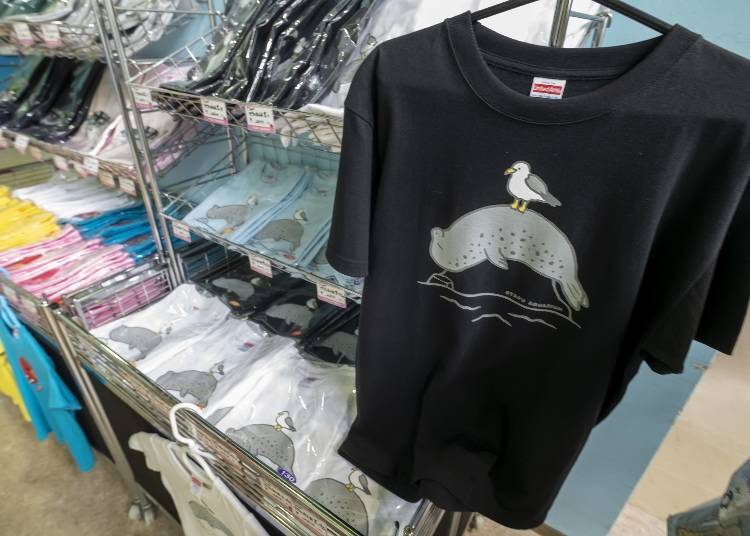
Something you should look out for is the aquarium’s original T-shirt. The most popular choice is the “Earless Seal T-shirt” (2,420 yen; tax-inclusive). The “Ohoktsk Atka Mackerel T-shirt” (2,420 yen; tax-inclusive) recommended by the aquarium, has a cute design too.
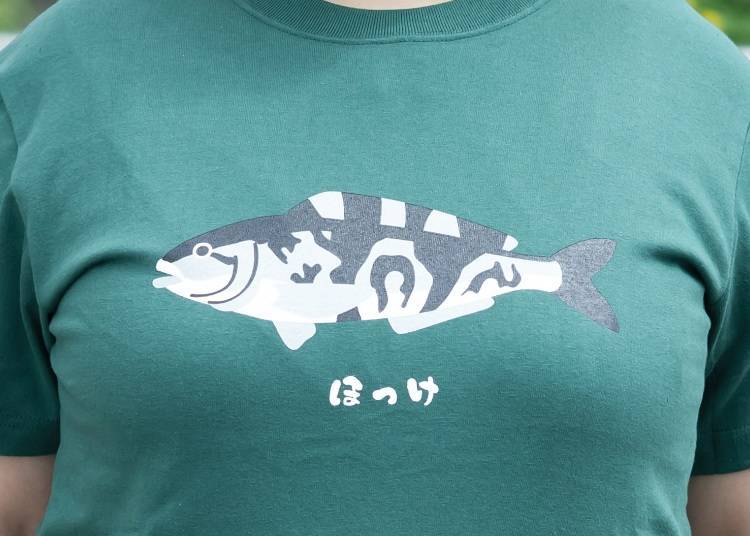
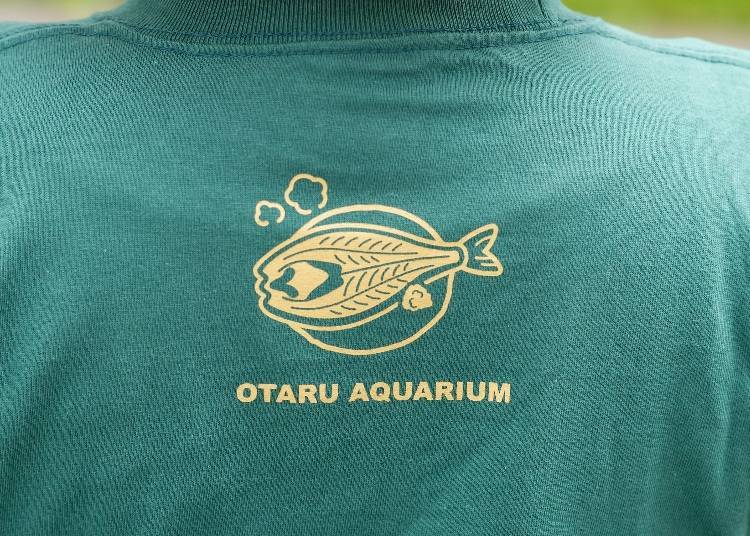
The plush animal toys sold here are of a range of sizes, from small plush toys that fit snugly in your hands to large, huggable ones.
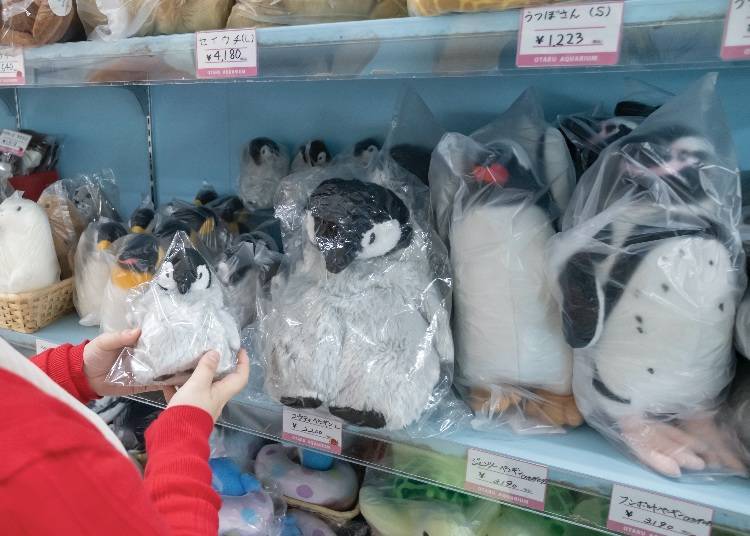
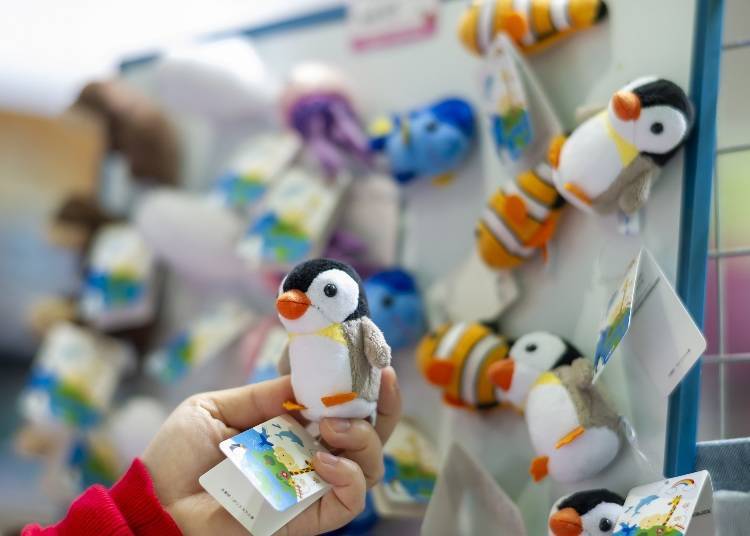
Getting to Otaru Aquarium from Sapporo

JR Train + Bus
Ride the train from Sapporo to Otaru on the JR Hakodate Main Line. Then, take a bus (Hokkaido Chūō Bus) from Otaru Station bound for the aquarium. There are different kinds of discounted tickets offered by various companies, so pick those that suits your needs and schedule.
Discounted Tickets
JR Hokkaido “Otaru Aquarium Ticket Set”
・This set includes tickets for JR trains and buses for a round trip from Sapporo Station and coupons that can be exchanged for admission tickets into Otaru Aquarium. You are free to hop on trains between Otaru Station and Otaru Chikko Station too (limited to only non-reserved seats on ordinary trains). The bus ticket entitles you to a single-time round trip between either “Otaru Unga Terminal” or “Otaru Eki-mae” and the aquarium.
Hokkaido Chūō Bus “Otaru One-Day Boarding Pass”
・This boarding pass entitles you to unlimited bus rides for a day on the local buses within Otaru City. If you intend to go around Otaru to explore, this will be ideal. This option also comes with discounts for admission tickets into Otaru Aquarium.
Access by Bus
Purchase the “Otaru Aquarium Pass Set (Round Trip)” from Hokkaido Chūō Bus, which contains round-trip tickets from the city center of Sapporo to the aquarium. Take an express bus from Sapporo to Otaru Station, then change to a local bus. Admission tickets to the aquarium are included in this set.
Access by Car
Go onto National Route 5 from Sapporo. If you are taking the highway, get onto the Sasson Expressway (toll fee applicable) from Sapporo and exit at Otaru IC. If you are headed to the aquarium from within Otaru, go along Hokkaido Prefectural Road Route 454. Paid parking spaces are available at the aquarium.
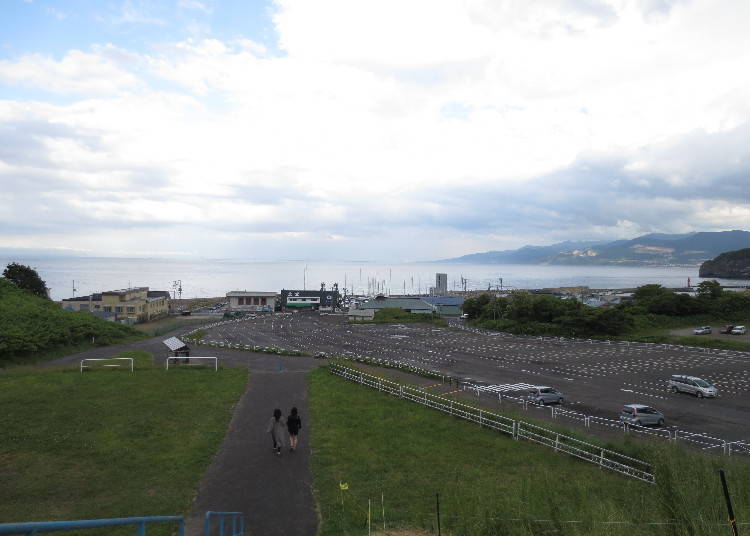
Otaru Aquarium has lots to offer across the year, with their shows and events changing seasonally. Besides the sea creatures and areas introduced in this article, there remains much more to be discovered. Whether you are a first-time visitor or not, you should definitely stop by Otaru Aquarium while you are here in Otaru!
-
Otaru Aquariumおたる水族館
- Address 3-chome-303, Shukutsu, Otaru-shi, Hokkaido 047-0047
- Phone Number 0134-33-1400
Hours: Normal hours 9:00 a.m. – 4:00 p.m. (last entry at 3:30 p.m.) from 20 March 2020 (Friday/Public Holiday) to 23 November 2020 (Monday/Public Holiday)
Winter Period 10:00 a.m. – 4:00 p.m. (last entry at 3:30 p.m.) from 12 December 2020 (Saturday) to 28 February 2021 (Sunday)
*Extension of opening hours occurs at times. Please check the official website for more details.
Fees: 1,500 yen for adults; 600 yen for children (elementary and middle school); 300 yen for toddlers (above 3 years old)
Closed: 24 November 2020 to 11 December 2020
Text by:minna no kotoba sha
*The information provided in this article is accurate as of July 2020.
Minna no Kotoba Sha is a production company founded by an editor with extensive experience in editing local magazines in Sapporo. For over 20 years, our team has conducted research and written articles across Hokkaido, with Sapporo as our primary hub. Our diverse portfolio includes the production of various books such as travel guides, informational magazines, and collections showcasing the picturesque landscapes of Hokkaido. Comprised entirely of women, the team at Minna no Kotoba Sha boasts diverse interests, including a passion for travel, culinary delights, and alcoholic beverages. The scope of our communication efforts spans a wide range, covering everything from introducing notable restaurants to providing coverage of local events and sharing stories of leisure experiences.
- Area
- Category
*Prices and options mentioned are subject to change.
*Unless stated otherwise, all prices include tax.
Popular Tours & Activitiess
Recommended places for you
-
Appealing

Shiroi Koibito Park
Theme Parks
Sapporo / Chitose
-

Farm Tomita
Other Nature
Furano / Biei / Sounkyo
-
Appealing

Sapporo Ramen Yokocho
Ramen
Sapporo / Chitose
-
Appealing

Rukku and Uohei
Izakaya
Sapporo / Chitose
-
Appealing

Otaru Canal
Rivers, Lakes & Canyons
Otaru
-
Appealing

Odori Park
Parks
Sapporo / Chitose
-

Expert-Recommended: 9 Hakodate Hotels Serving Up the Best Breakfasts in Town
by: Nobuka Kawashima
-

7 Iconic Hokkaido locations that will make your Instagram shine
by: Himanshi Shah
-

Beyond Hakodate and Matsumae: Enjoy the Hidden Gems of Hokkaido’s Donan Area
-
Ad

Smart Ways to Avoid Crowds and Enjoy a Safe, Comfortable Trip to Otaru.
-
Ad

Smart Ways to Avoid Crowds and Enjoy a Safe, Comfortable Trip to Noboribetsu Onsen
-

BIGGEST SALE ALERT! SATUDORA Tax-Free Winter Sale: Stack Coupons for Massive Savings!
by: Guest Contributor
-

JR Edition: Visit all of Tokyo in one Day with the Tokyo Metropolitan District Pass!
-

These 18 Things to Do in Hakodate Will Make You Fall in Love With the Northern Wonderland
by: Guest Contributor
-

Hokkaido's ROYCE' Cacao & Chocolate Town: Fun Factory Tour & Chocolate Making Experience
-

Hoshino Resorts Tomamu Ice Village: The Wild Hokkaido Winter Wonderland You Can't Miss
-

Where to Stay in Noboribetsu Onen: 6 Ryokan Hotels in Hokkaido's Spa Wonderland
by: Masakazu Yoshida
-

3 Fun Theme Parks to Visit in Noboribetsu to See Flying Seals and Ninja Fighters
- #best sushi hokkaido
- #things to do hokkaido
- #best ramen sapporo
- #what to bring to japan
- #new years in tokyo
- #what to buy in ameyoko
- #japanese nail trends
- #what to do in odaiba
- #onsen tattoo friendly tokyo
- #daiso
- #best sweets otaru
- #japanese fashion culture
- #best nature furano
- #japanese convenience store snacks
- #best japanese soft drinks













